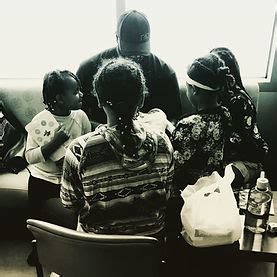The darkness of despair can be overwhelming, making it seem like the only escape from the emotional pain is to succumb to thoughts of death. These thoughts, often referred to as “Guess I’ll die” thoughts, can be a symptom of deeper psychological distress, signaling a desperate cry for help and a longing for peace. It’s essential to address these thoughts with compassion, understanding, and a commitment to finding hope and healing.
Understanding the Complexity of Suicidal Thoughts
Suicidal thoughts, including those that seem as passive as “Guess I’ll die,” can arise from a myriad of factors, including but not limited to:
- Mental Health Conditions: Disorders like depression, anxiety, bipolar disorder, and schizophrenia can increase the risk of suicidal thoughts. The emotional pain and distress associated with these conditions can make individuals feel like they’re drowning in their struggles.
- Trauma: Experiencing or witnessing traumatic events can lead to feelings of hopelessness and despair. The aftermath of trauma, if not addressed, can significantly impair an individual’s ability to cope with daily life, leading to passive suicidal thoughts.
- Substance Abuse: The use of drugs and alcohol can exacerbate mental health conditions and lead to impulsive decisions. Substance abuse can also lead to a deterioration in mental health, increasing the risk of suicidal ideation.
- Chronic Pain and Illness: Living with chronic pain or a debilitating illness can lead to feelings of worthlessness and a desire to end one’s life to escape the suffering.
- Social Isolation: Lack of social support and feeling disconnected from others can exacerbate feelings of despair and hopelessness.
- Bullying and Abuse: Being a victim of bullying or abuse can make an individual feel worthless, unloved, and unwanted, leading to passive suicidal thoughts as a means of escape.
Breaking the Silence: Seeking Help
It’s crucial to understand that suicidal thoughts are a signal for help, a desperate attempt to convey the depth of one’s suffering. Breaking the silence and seeking help is the first step towards healing. Here are some ways to find support:
- Professional Help: Mental health professionals, such as psychologists and psychiatrists, are equipped to handle these situations. They can provide therapy, medication, or a combination of both to help manage symptoms.
- Support Groups: Joining a support group, either in-person or online, can provide a sense of community and understanding. Sharing experiences with others who have gone through similar situations can be incredibly comforting and reassuring.
- Hotlines and Helplines: For immediate support, calling a suicide prevention hotline can provide instant connection to someone who cares. These services are available 24⁄7 and are staffed by trained professionals who understand the desperation and can offer guidance and support.
Finding Hope
Hope can seem like a distant concept when enveloped in darkness, but it’s the beacon that guides us through our darkest moments. Finding hope involves:
- Acknowledging the Pain: Recognizing the depth of one’s emotional pain without judgment. It’s okay to feel overwhelmed, and acknowledging this can be the first step towards healing.
- Seeking Professional Guidance: Working with a mental health professional to develop coping strategies and understand the underlying causes of these thoughts.
- Building a Support Network: Surrounding oneself with caring, non-judgmental people who can offer emotional support and companionship.
- Engaging in Self-Care: Participating in activities that bring joy and help manage stress, such as exercise, meditation, or hobbies.
- Focusing on the Present: Rather than getting bogged down by fears of the future or regrets of the past, focusing on what can be controlled in the present moment.
A Message of Hope
To those struggling with thoughts of “Guess I’ll die,” it’s essential to remember that these thoughts do not define your worth or the potential richness of your life. You are not alone in your struggle, and there are people who care deeply and want to help. Reaching out for support is a sign of strength, not weakness. Every life is precious, and there is hope for healing and a future filled with purpose and joy.
FAQ Section
What are the warning signs of suicidal thoughts?
+How can I support someone with suicidal thoughts?
+Where can I find immediate help if I'm having suicidal thoughts?
+You can call a suicide prevention hotline, such as the National Suicide Prevention Lifeline at 1-800-273-TALK (8255), or text the Crisis Text Line at 741741. These services are available 24/7 and are staffed by trained crisis counselors.
Healing is possible, and there is always a way forward, even in the darkest of times. Remember, you are not alone, and there is hope for a brighter tomorrow.



